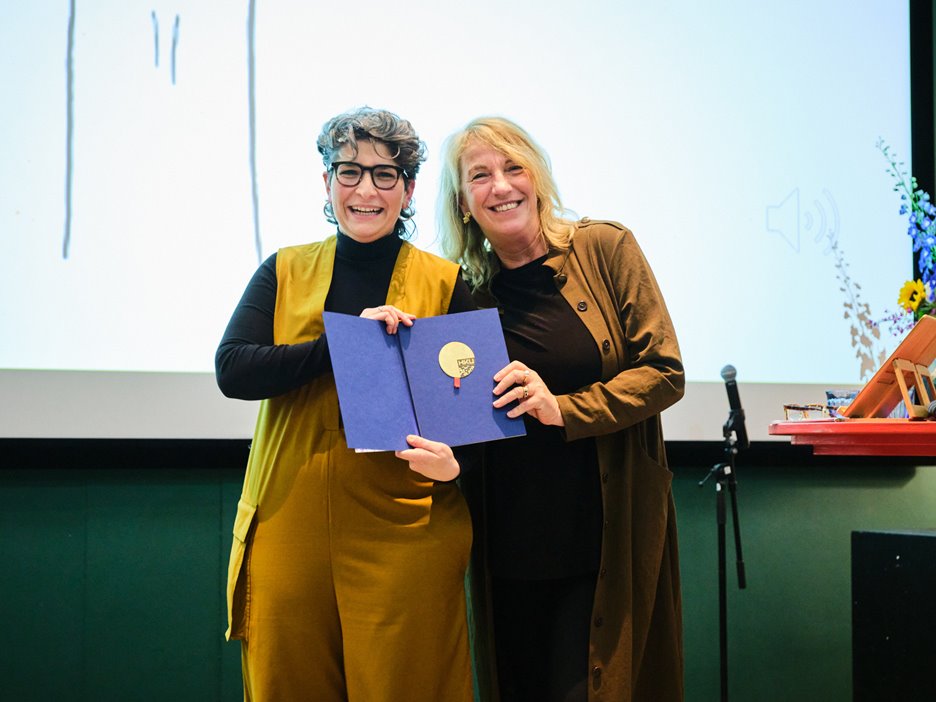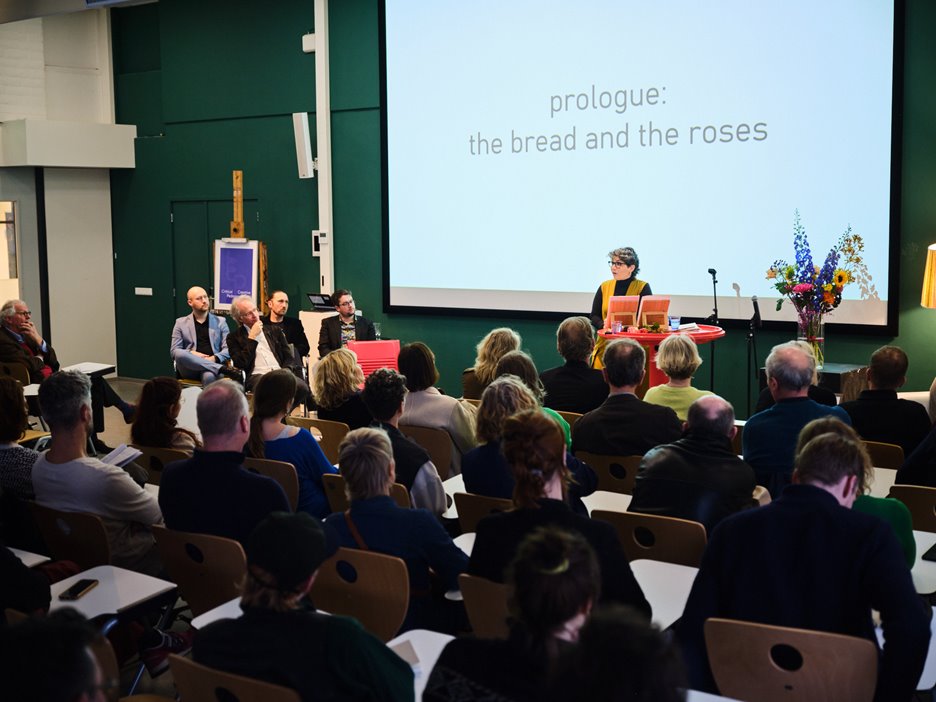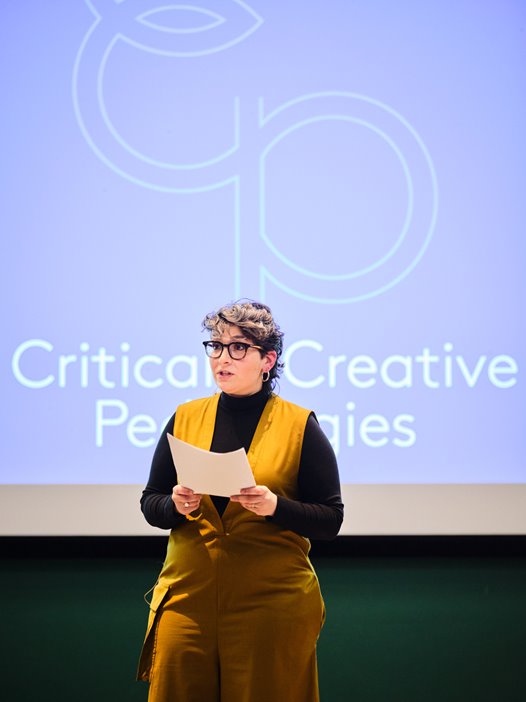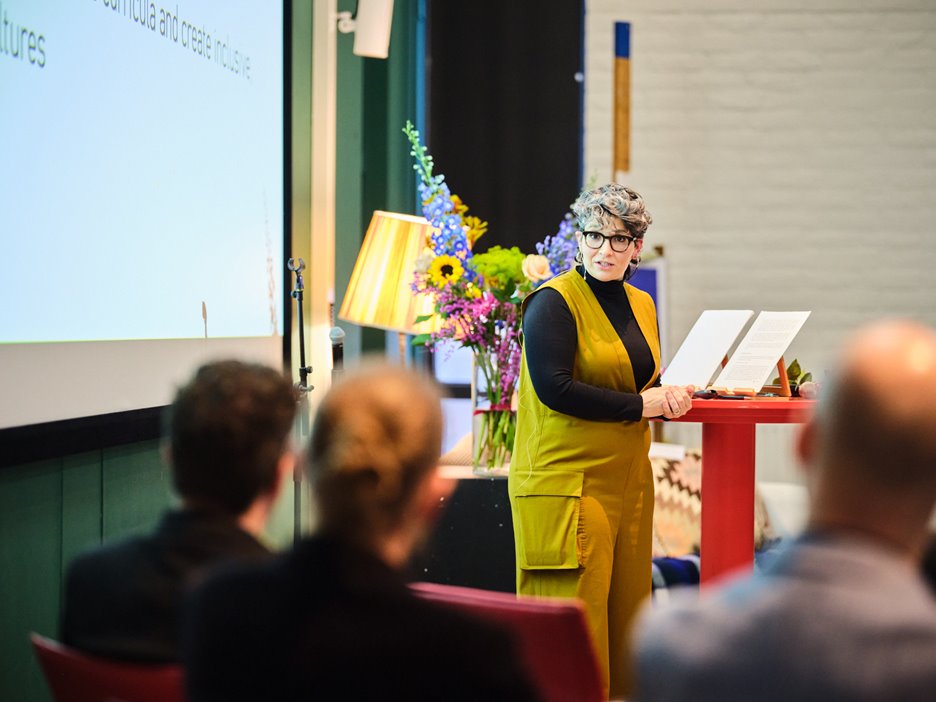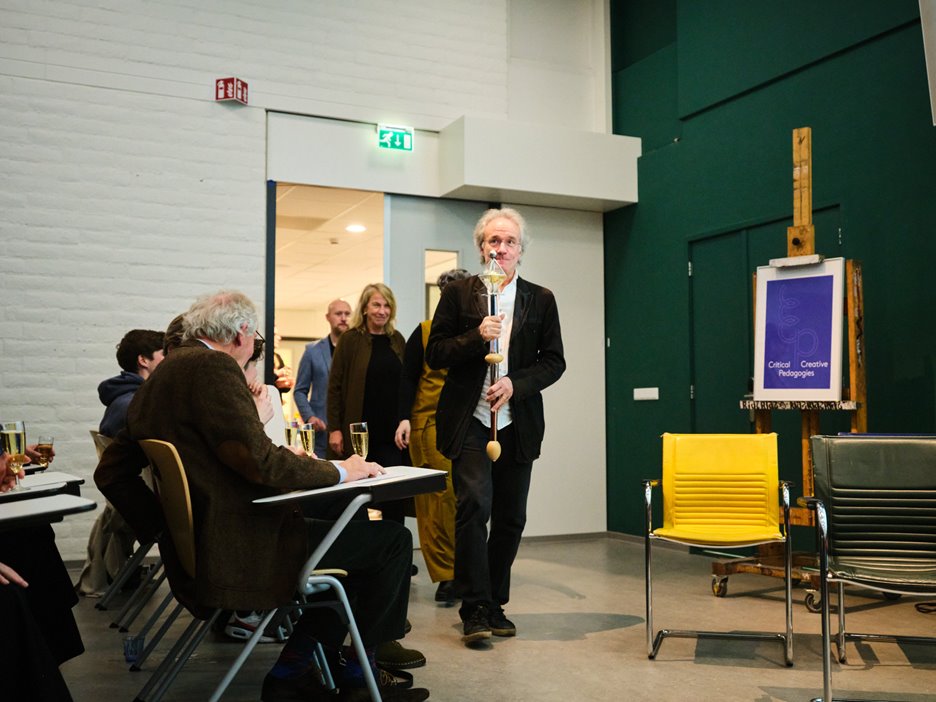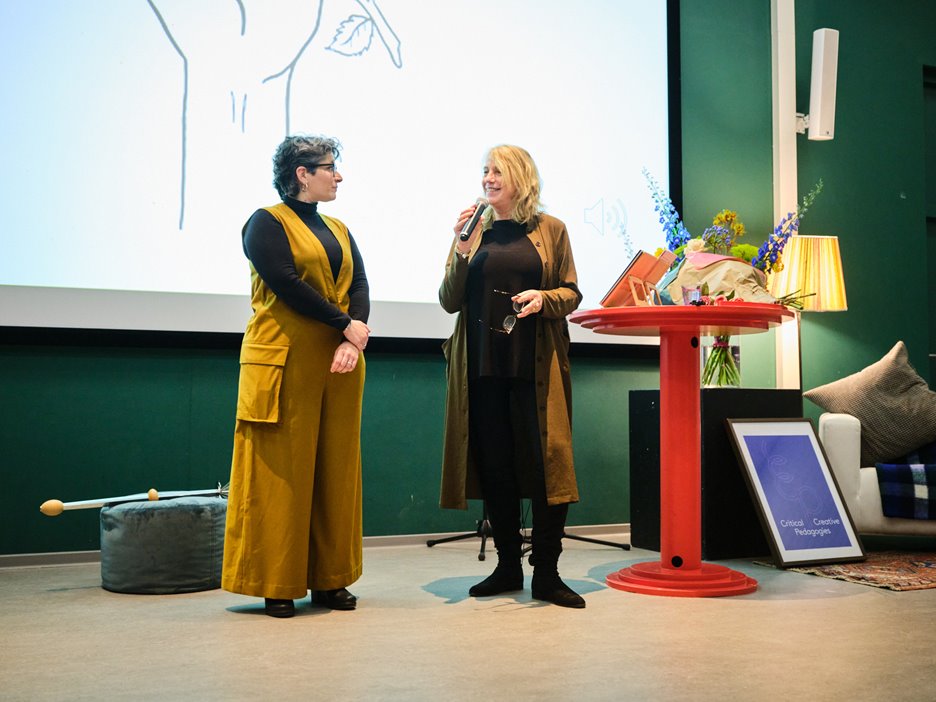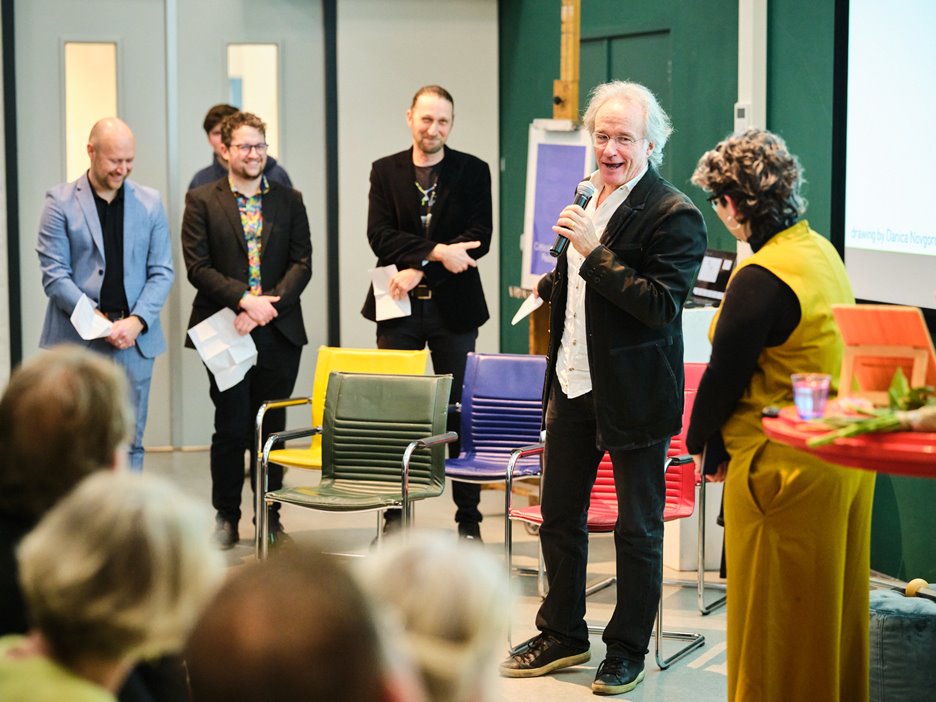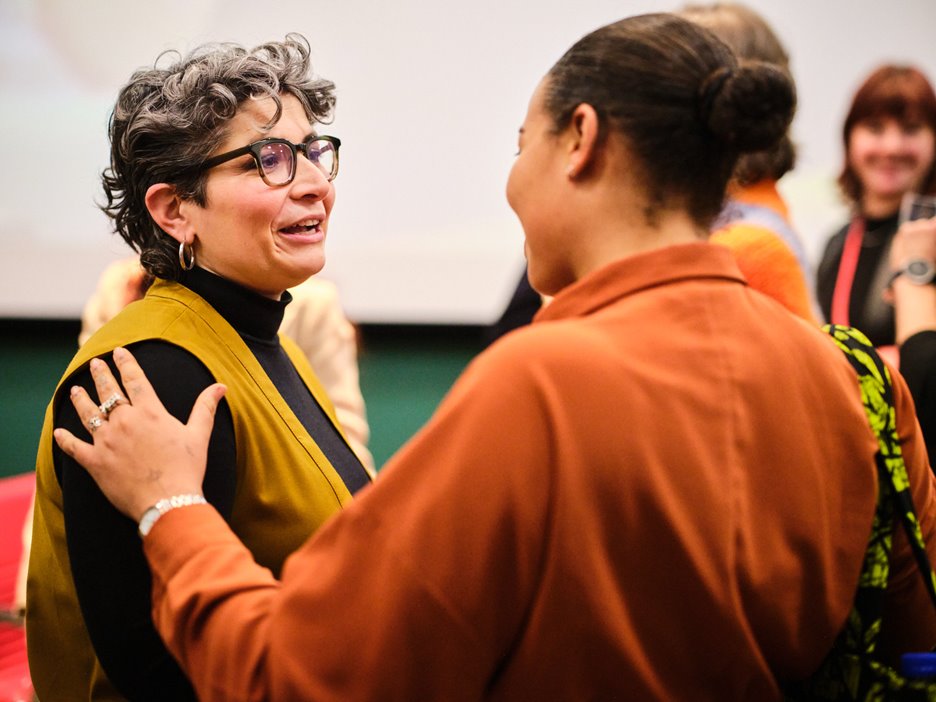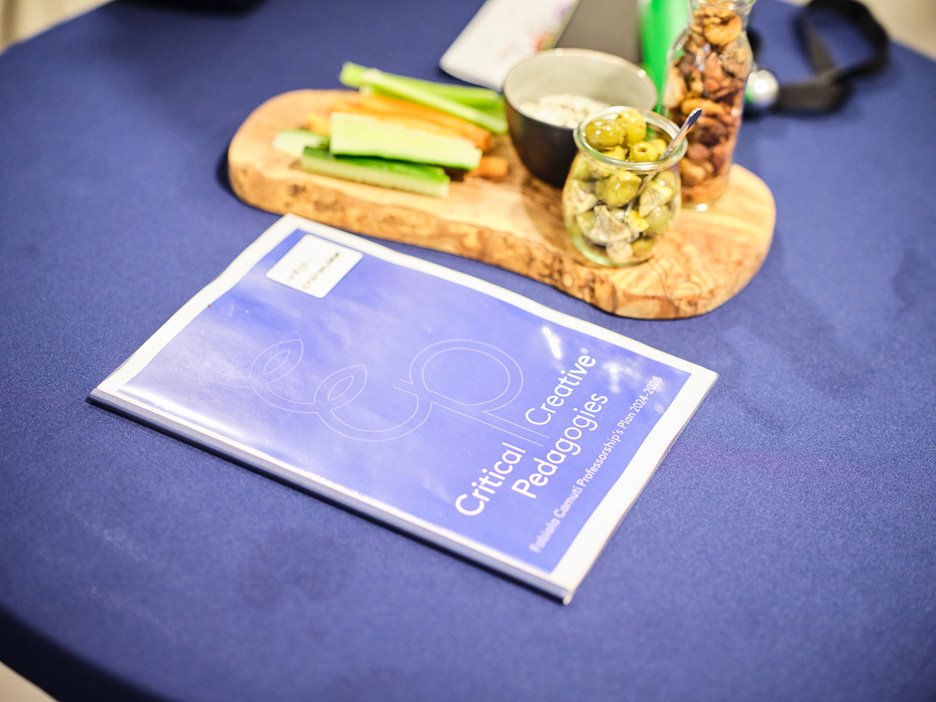Executive Board chair Heleen Jumelet explains: “Education and art are much more than a luxury, or an ‘extra’. They are essential for raising a society that upholds the values of sustainability, care, and complementarity. Art education is not just about training professionals: it’s about training critical thinkers and creators who question both students and societies and whose imagination can stimulate their development. Therefore, we are thrilled with this new professorship, Critical Creative Pedagogies, that thoroughly strengthens and supports critical innovation and the fostering of art education.”
Public class
The appointment of the new professor was traditionally preceded by a public class, in which Fabiola Camuti focused on the transformative power of art and art education. The class presented them as an instrument for societal change, of which the political and social impact is often underestimated, while education is often the starting point for change and transformation of society. Guided by the principles of Care and Unlearning, the public class explored the importance of creating more fair and inclusive learning environments.
Prior to the public class, the guests participated in three workshops about currently ongoing research activities and projects within the professorship’s community. These workshops covered the topics of art education and neurodiversity, HKU as a caring pedagogical institution, and research in creative education.
Unlearning
The Critical Creative Pedagogies professorship that Fabiola Camuti will lead, explores the necessity for students and teachers to critically deal with knowledge systems, to question the dominant paradigms, and to embrace a sustainable approach to learning. It stimulates students to develop themselves into independent thinkers who are capable of navigating through complex professional environments. Unlearning – which means the abandonment of divisive power structures that we have come to regard as normal– is an essential aspect of this, Camuti explains. ‘This shift enables us to develop strategies for a more caring, experience-based and affective form of art education.’
Read our full interview with Fabiola Camuti or learn more about the professorship
